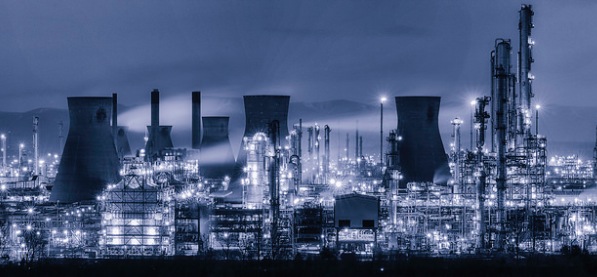McKibben’s Extreme Energy: Why Not Frack?

Bill McKibben, the environmentalist, prolific author, former New Yorker writer, and founder of grassroots green organization 350.org, wrote a review of two books and a film on hydraulic fracturing for last week’s New York Review of Books. Until I read this piece, titled “Why Not Frack?” I shared the opinions of Robert Kennedy, Jr., the Sierra Club and President Obama that the fracking process for removing natural gas from underground shale is the least of energy’s environmental evils. Infinitely cleaner than coal. Safer than nuclear. Less risky than oil.
Even the term “fracking” brings a host of reassuring associations. Frick and Frack comes from a pair of skating comedians who later conceptualized the Ice Follies. The moniker continued to be a favorite, from the pair of Chihuahuas on Dudley Do-right to the stars of NPR program Car Talk. Frack is the second half of a funny, loyal, hard-working partnership. Most of all, it is harmless.
Industry champion Chesapeake Energy uses positive language that plays off these associations. The company’s hydraulic fracturing fact sheet describes “fracing” (more on the different spelling below) as the “process of creating fissures, or fractures, in underground formations to allow natural gas and oil to flow.” Allowing natural gas to flow… sounds so natural and safe, who wouldn’t support it over dangerous processes for oil, coal and nuclear with all their attendant imagery of death and destruction? By comparison, the fracking solution seems like such a safe alternative, occurring way out of sight, up to 7,000 feet below the earth’s surface.
This same fact sheet uses the word “protect” ten times, including two mentions of one of two primary data sources and assumed supporter, the Ground Water Protection Council. “Safely” and “environment” are used three times each. The process is positioned as an “advanced” and “sophisticated” (used three times) process that “opens” (three times) to allow a “flow” (four times). The effort is “vast,” “extraordinary” and “deep” (used a whopping 19 times.) Out of sight, out of mind.
But when the New York Times reported that Chesapeake Energy’s Chairman had given the Sierra Club $26 million, the whole thing began to stink.
Still, if we forgo natural gas, what are our alternatives?
And that was my stance too until I read McKibben’s article. Now I’m fiercely on the environmental side. How did he persuade me? His masterful command of language.
McKibben’s article reverses each of these associations. First, he uses “fracking” consistently throughout the article. And what associations do anti-fracking supporters make with “frack”? Of course, the most egregious of expletives, as in “Don’t Frack With New York.” Then there are crack and smack and whack, all synonyms for drugs and petty violence. All associations the natural gas industry wants to avoid, hence their insistence on the spelling “fracing.”
McKibben’s description of the fracking process replaces the industry’s “opening the flow” with “ripping apart the earth… heating up the ground… (and) tearing holes in the (earth’s) crust.” He quotes Seamus McGraw’s book The End of Country on the mechanisms of gas removal:
a kind of subterranean pipe bomb, a small package of ball-bearing-like shrapnel and light explosives. The package is detonated and the shrapnel pierces the bore hole, opening up small perforations…slick water…blasts through those perforations…at such force…that is shatters the shale.
These are bellicose words, literally: words about war and terrorism.
After this assault, McKibben gets folksy on us, in keeping with the kinder, gentler image of natural gas that we hold dear, comparing the discovery of the Marcellus shale that runs along the East Coast to “discovering an underground deposit of beer directly beneath Yankee Stadium.”
The friendly language leaves reader feeling as “congenial” as the “powers that be in Harrisburg,” beneficiaries of the fracking land rush who have limited regulation, charge no taxes and even opened up state forests as drill sites.
Just as we’re feeling that McKibben might not be totally against the process, he comes clean with his own concerns. His language brings up 21st-century bogeymen: “Halliburton is a major player in the fracking boom;” “exempt from federal safe drinking water statutes;” “Center for Disease Control;” “toxicology of fracking chemicals;” “4.0 magnitude earthquake;” “seismic fault;” “briny soup;” and finally his most horrific image: “200,000 to 400,000 gallons will be regurgitated back to the surface, bringing with it all the noxious stuff that was already trapped down there.” McKibben’s visuals are cinematic.
If his visuals are movie-worthy, the results he describes are terrifying: “pretty much everything (in the contaminated creek) died;” “river water began corroding equipment.” Radioactivity high enough to cause risks of cancer for people eating fish from affected waters. Unburned natural gas escaping during the drilling process that is many times more polluting than carbon released from burning coal.
McKibben’s penultimate paragraph starts with a brilliant linguistic feat, renaming natural gas obtained through fracking “extreme energy,” as in dangerous and irresponsible “extreme sports,” negating the industry’s “safe” claims. Instead of referring to fracking as “drilling,” McKibben calls it “ripping the planet apart.”
Great writers change the world. Upton Sinclair’s book The Jungle created a public outcry over meat packing that resulted in food safety regulations. Rachel Carson’s Silent Spring launched the environmental movement. With “Why Not Frack,” Bill McKibbens brings the same persuasive eloquence to the fracking debate.
It’s a brilliant piece of writing.
Photo courtest of john mcsporran via Flickr


